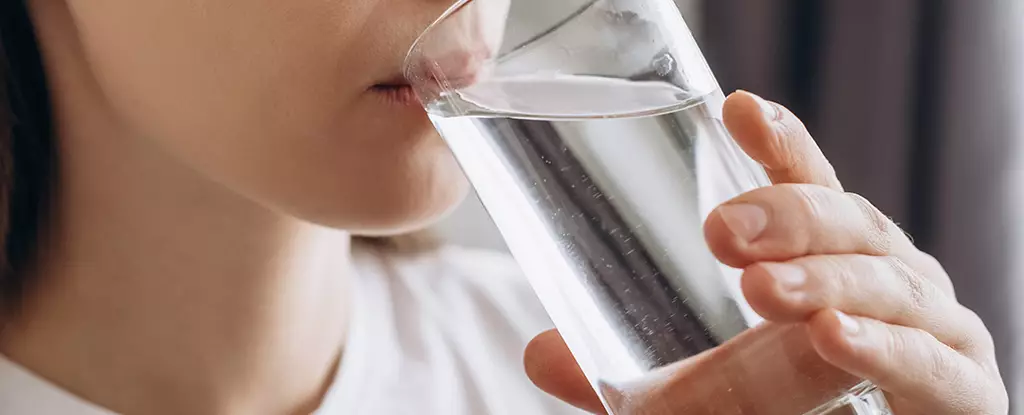Microplastics have become a major concern as they continue to make their way into our bodies through the food and drink we consume. Scientists have recently discovered a simple and effective method for removing these tiny plastic particles from water, offering a potential solution to this growing problem.
A team of researchers from Guangzhou Medical University and Jinan University in China conducted experiments using both soft water and hard tap water to test the efficiency of removing nanoplastics and microplastics (NMPs) from the water. By boiling the water and then filtering out any precipitates, they were able to remove up to 90 percent of the NMPs in some cases. The effectiveness of this method varied depending on the type of water used.
It was found that a higher concentration of NMPs was removed from hard tap water, which contains a higher mineral content and often forms limescale as it is heated. This limescale effectively traps the plastic fragments, making it easier to remove them through simple filtering methods. Even in soft water, where less limescale is formed, a significant portion of the NMPs were successfully removed.
The researchers suggest that boiling water to remove microplastics could help reduce human exposure to these harmful particles and potentially alleviate some of the negative impacts they have on our health. While the exact effects of microplastics on the human body are still being studied, it is clear that they are not beneficial. Plastics have already been linked to changes in gut microbiome and antibiotic resistance, highlighting the importance of finding ways to limit our exposure to these materials.
The research team believes that drinking boiled water could become a more widespread practice as the prevalence of plastics continues to grow. By conducting further research on the effectiveness of boiling water in keeping microplastics out of our bodies, they hope to identify strategies for minimizing the impact of these particles on human health. This study has laid the groundwork for future investigations into the long-term benefits of removing microplastics from our water sources.
The discovery of the effectiveness of boiling water in removing microplastics offers a promising solution to a pressing environmental and health issue. By taking simple steps like boiling and filtering tap water, individuals can reduce their exposure to harmful plastic particles and protect their health in the process. Further research is needed to fully understand the implications of microplastics on human health and to develop more strategies for minimizing their impact.

Leave a Reply